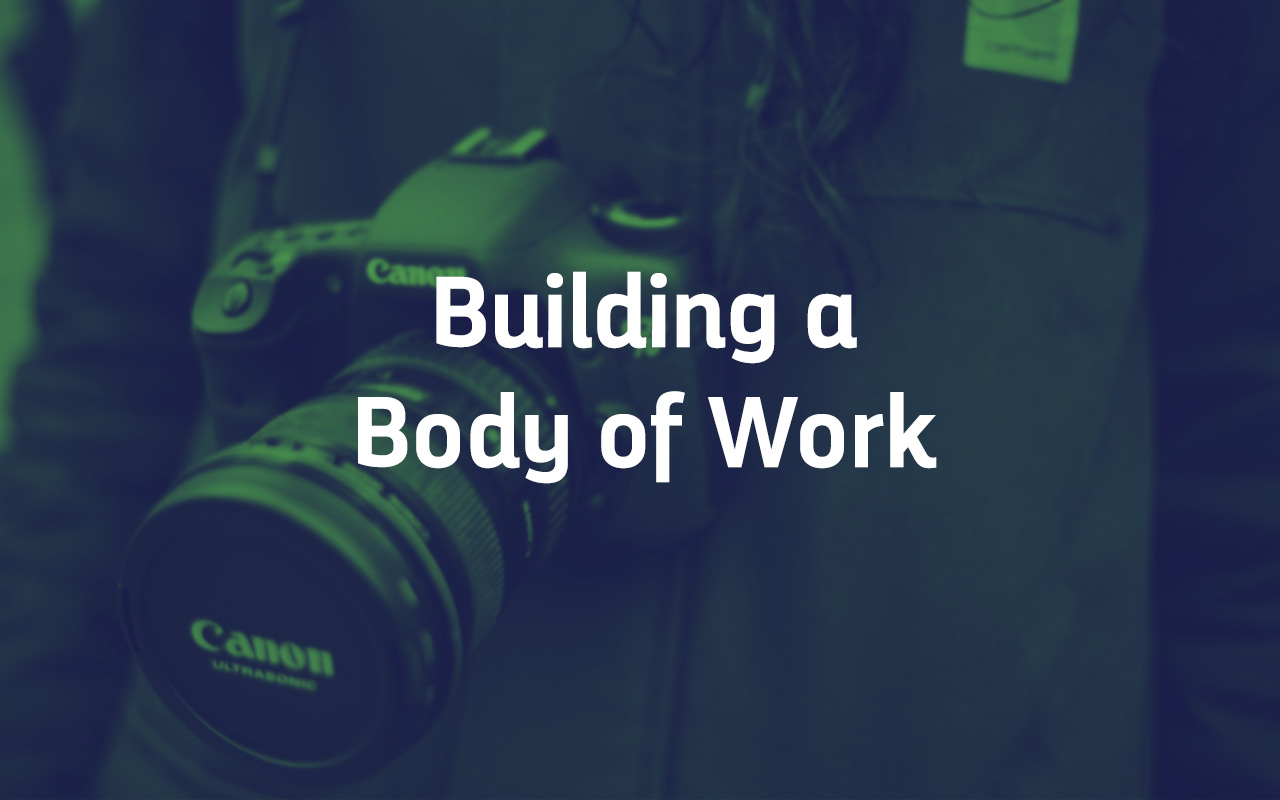Build a body
For years, the CV has been the staple of employing a potential candidate for a position. It’s a list of your best work, what you’ve studied, where you’ve studied it, where you have worked and the positions you’ve held. An important document for any recruiter to see, there’s no doubting that. But that’s just it. A list. Even if you are a create marvel and have an incredibly intricate system and dedicated website that held you CV with impressive parallax scrolling and interactive features. It’s still a list of things, most of which are irrelevant. So what if I told you there is another way to show off these traits, in a more natural environment, in a way that shows the huge value you have to offer? It’s time to eliminate your CV.
It’s all about having a body of work.
There are far more positives to owning a body of work that you can track, that has social proof, something you can generate income from, something you have built an audience for, something that has a community around it, that you build, from your own dedication to showing up and your passion for succeeding at this thing. Side projects and passions are a creatives’ most valuable currency when applying for day jobs.
If you haven’t reached a point where you can take your passion full-time and make a living at it, but still need a day job to get by and pay the bills. Or maybe your passion lies in a career working for someone else as part of something larger, as part of a great team and a great organisation. Then this post is for you.
It’s absurd to think that a creative should be judged on the merit of what’s listed on a sheet of paper when posting a CV to a business for a creative job. What you should be judged on is what you have built. How have you showed up to this thing you love to do outside of your day job? What have you made in your spare time that creates value, that helps others? When you show up in your free time to do what you love in order to build something in the long term that serves to benefit others, you’re actually benefiting yourself in more ways that one. You get the satisfaction from doing the job, and the benefits of being accredited with building this thing in the eyes of an employer/client. It’s a win-win.
The benefits
Perhaps the biggest benefit that gets overlooked in a body of work – You own a body of work. It’s at your disposal. You can sell it, licence it, print it, whatever you want, no questions asked. When you create a body of work for another business internally, that is not your work. As much as you want it to be, I repeat, it is not your work. You don’t own the rights to it. It belongs to the company you are working for or contracted to at the time. All the more reason to create a contract for your services.
This may not be of any importance to you, but if you’re proud of a piece of work and want to print it, or hang it in a gallery, the company you work for has the right to take you up for it. Owning your own work gives you proof. A proof that you can make this kind of work using your own skill, your own time, and your own initiative. You can always point to it, and direct others to it. It exists to benefit you personally and professionally, and it serves as your legacy.
A body of work that is accessible to everyone at any time (via online), is tangible evidence of your work and skills. You can direct people to it 24/7. It’s proof that you know how to do something and that it’s not a bullet point on a piece of (virtual) paper. Your body of work dictates you, it speaks for you instead of you speaking for it. Think of how powerful that is in an interview, or when selling your services. It’s evidence that you know how to do something, and not that you say you know how to do something.
Your body of work helps build your skills. It’s a series of failures and gradual growth of your talent into a fully fledged series of skills. Let’s be honest, when you build something, you’re not just learning one skill. You learn a multitude of skills. As a lettering artist, for example, I film time-lapses of my work on camera and take photos of my artwork in physical form. That required me to learn how to use a camera, edit video, edit photos, and learn the software associated with those skills. That’s not even the tip of the iceberg. Think of all the research that went into website building in order to house those images and video, how to create specific effects in video, how to colour and tone photos etc. The list is endless, and that’s not even the skill that went into learning how to be a lettering artist in the first place. When you learn one thing in a create environment, be it design, photography, animation, UI, app development, you’re in fact learning so much more about various create outlets, they each feed into another to help you become more knowledgeable and develop an understanding of different practices. Creatives don’t exist in a bubble. Any smart recruiter/client would know that.
You can look back and see your progress as an artist. You can see where you’ve started from and where you are at this moment in time. When I love back at my first lettering works, I don;t get embarrassed or want to delete them. I simply acknowledge that I was not as skilled as an artist back then when I was first starting, and over time and with a lot of practice I have developed and picked up more and more skills, tips and insights into the art form. A large body of work will help you envision where you have come from, where you are, and help guide you to where you want to go.
If there is one thing a body of work does, it’s that it shows your passionate about something.
Passion is the hardest thing for an employer to teach, in fact. I would argue that you can’t teach passion. It has to come from within. It’s a deep seeded drive and will to succeed, in your career, in your hobbies, in your life. It’s a personal goal and something that can’t be thought. When I run my own business in the future, this is the key indicator that I will hire off. Everybody is capable of submitting a virtual form with stats and achievements, but it’s the passionate ones with drive that I want working for me. Someone who has a sense of direction, who knows what they want in their life and career. Anyone can be thought a system, no one can be thought passion.
I got my current day job because of my passion, not because I was qualified. I asked the recruiters (after I was hired, of course) why I was chosen for the position and they told me that it was because I was so immensely passionate about what I do outside of my day job. I work in the largest national newspaper in Ireland, and I’m the youngest on the creative team (at the time of writing). That says something about being passionate.
Find what you’re passionate about, explore your options. When you do find something, build a body of work around it, cultivate a set of skills, leave a legacy around this thing. Over time, you will have put a large amount of time and effort into this thing, you’ve learned a lot and gone through hardships, and sometimes you’ve thought of quitting, but you still show up, you were there for the highs and lows. Show it off!



